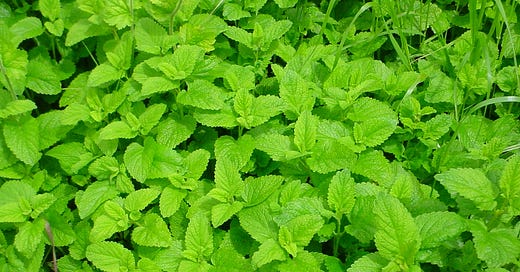As I am about to begin a new farming adventure in Colorado, I take a moment to look back at the 2005 event that launched me into the world of agriculture—a hurricane. The following is an excerpt from my 2015 book, “Adventures in Urban Bike Farming,” which is equal parts historical document, confessional memoir and social critique. It tells the story of “Sunroot Gardens,” a bicycle-based urban farming operation that I founded and cultivated in Portland, Oregon, in the early 2000’s. The book is available in paperback and as an ebook.
"The future's here, we're it, we're on our own." (John Barlow and Robert Weir)
August 2005: In the days leading up to Hurricane Katrina's landfall, widely-publicized forecasts were predicting a direct hit on New Orleans. I assumed this disaster would be the excuse for much flag-waving as a heavy-duty rescue operation took place. After all, the USA's military was increasingly bogged-down overseas, the mainstream economy was performing poorly, and the resident of 1700 Pennsylvania Avenue was losing popularity. Televised heroics could provide a distraction from all of this and more.
A few days after Katrina carved her swath of destruction across the city and region, flags were certainly being waved as FEMA, the Red Cross, and the other big players arrived, but the response was woefully inadequate, even botched. I was puzzled. After all, this wealthy nation had the means for a massive humanitarian undertaking. Why was it not doing it? Then I realized, with shock, that the drama playing out was no accident: an entire city was simply being cut loose. The system was more brutal than I had believed. I had been naïve.
In the weeks that followed, I had friends who traveled to New Orleans to help out. They were people from Portland's radical cliques: tree-sitters, herbalists, Indymedia activists and anarchists, and they immersed themselves in community efforts at the neighborhood-level. Their stories started to filter to Portland back via email and word-of-mouth. The government agencies and non-profits, being authoritarian by nature, could only apply a top-down approach, which inevitably lacked nuance and true responsiveness. In contrast, the grassroots efforts of my friends—focused on clean-up, medical help, and housing—were making a real positive difference, bringing together the forgotten and abused and empowering them to help themselves. I was impressed.
More than just impressed, I was affected. For me, Hurricane Katrina illustrated that we cannot count on big bureaucracies during times of crisis. Furthermore, I believed that “times of crisis” would become “the new normal” during my lifetime and that the longer we delayed collective preparation, the more difficult it would be later, when the shit really hit the fan. Many areas needed to be covered—housing, medicine, water, food, etc.—so I decided I would “volunteer for food” immediately.
Keep reading with a 7-day free trial
Subscribe to Speaking for the Trees, No Matter Where They're From to keep reading this post and get 7 days of free access to the full post archives.





